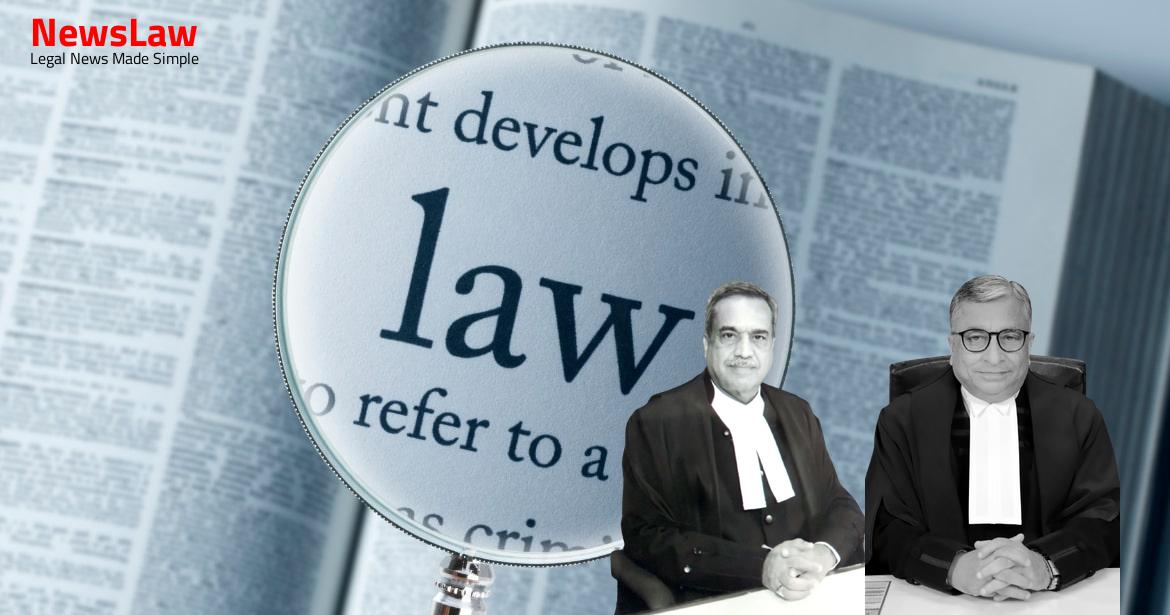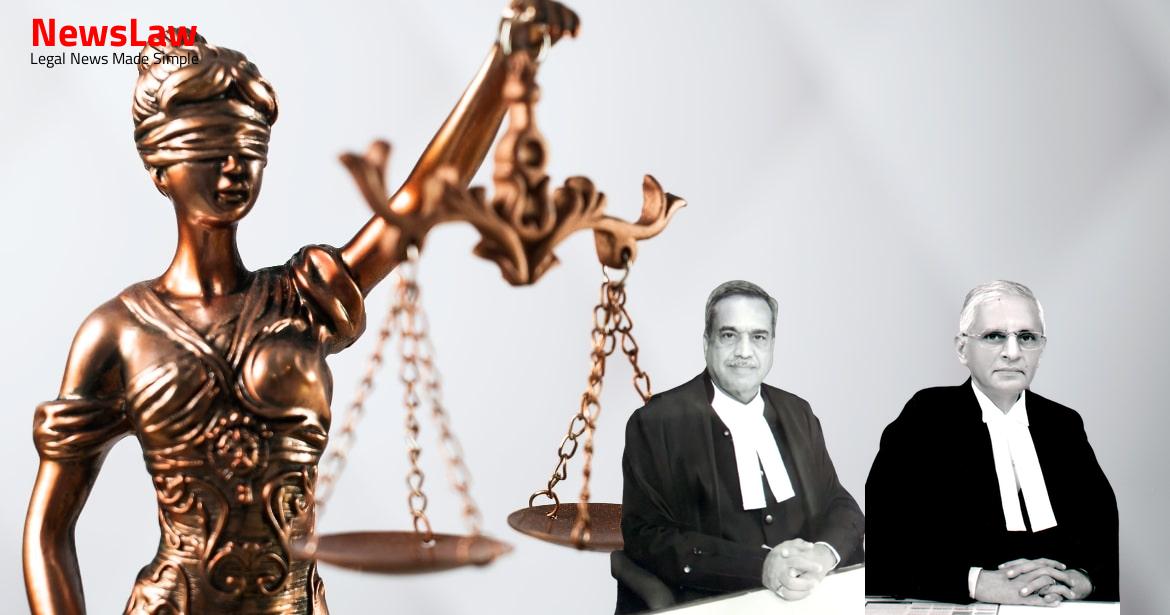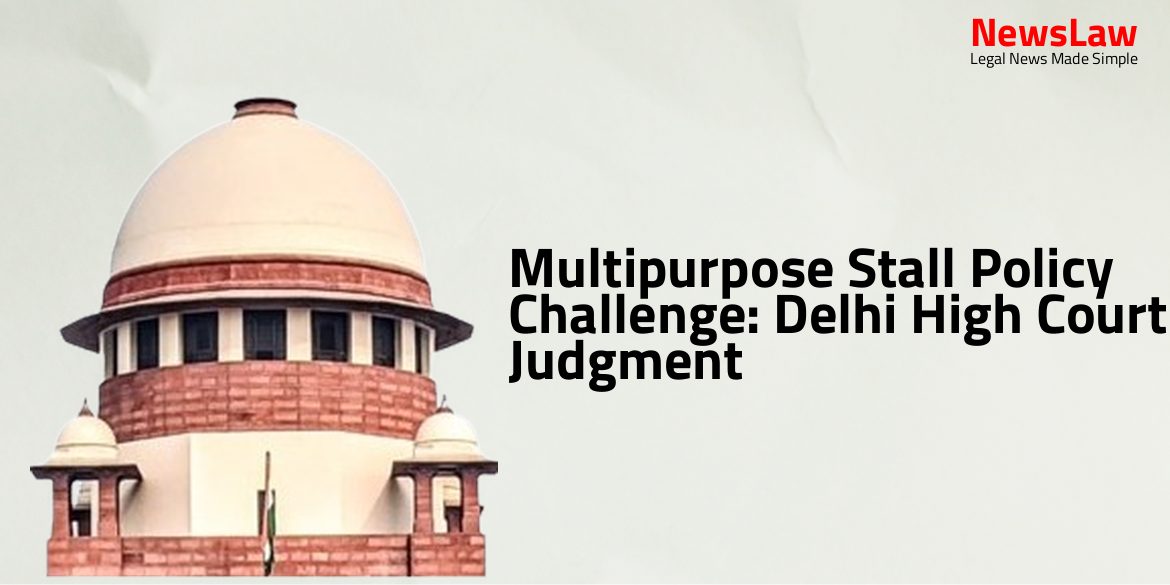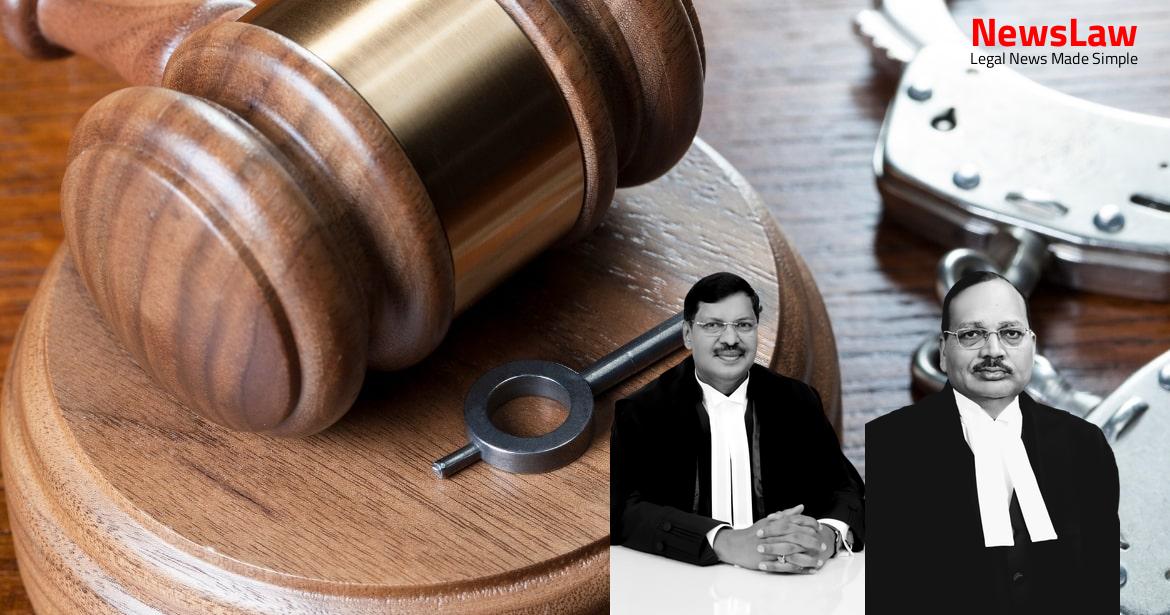In a recent legal case, the court delves into the complexities of an arbitrability dispute under Clause 36 versus Clause 37 of the Agreement. The court’s careful legal analysis underscores the significance of thoroughly examining whether a dispute falls under the purview of arbitration or non-arbitrable under the contract terms. This insightful exploration highlights the critical role of courts in ensuring the integrity of arbitration proceedings. Let’s explore the intricacies of the court’s decision in this compelling legal saga.
Facts
- Dispute arose between the parties regarding compliance with the obligations under the Addendum Agreement dated 19.04.2011.
- Respondents approached the High Court for appointment of arbitrators as per Clause 37 of the Addendum Agreement.
- Appellant opposed the arbitration petition on various grounds, including disputing the applicability of Clause 37.
- Appellant denied the appointment of the arbitrator.
Also Read: Challenging Legal Presumptions in Negotiable Instrument Cases
Issue
- The issue at hand is whether the High Court is justified in appointing arbitrators in an application under Section 11(5) and (6) of the Arbitration Act without conducting a preliminary inquiry on arbitrability.
- The relevant clauses of the Agreement, namely Clauses 36 and 37, are crucial to this consideration.
- Clause 36 deals with Dispute Resolution & Jurisdiction in case of conflicts or differences between the parties, or if either party fails to fulfill their obligations under the Collaboration Agreement.
- This clause sets the framework for resolving disputes between the parties as per the Agreement.
Also Read: Legal Analysis of Admission Irregularities in Educational Institutions
Arguments
- The respondent, M/s EMMAR India Limited, has appealed against the appointment of arbitrators by the High Court in a dispute resolution under the Collaboration Agreement.
- The agreement between the parties includes Clauses 36 and 37, showing the intention of resolving disputes through arbitration under the Arbitration Act.
- The respondent’s argument is that there was no error in appointing arbitrators as per the agreement terms and the Arbitration Act.
- The respondent’s representative argues that arbitrability of a dispute should be left to the arbitrator to decide under Section 16 of the Arbitration Act.
- The appellant argues that the dispute falls within Clause 36 of the Agreement and not under Clause 37, making it non-arbitrable.
- According to Clause 37, disputes related to Clauses 3, 6, and 9 must be resolved through the appropriate court of law, not arbitration.
- Clause 36 states that if a conflict arises or one party neglects obligations under the Agreement, the other party can enforce it through the court.
- The appellant cites the Indian Oil Corporation Limited vs. NCC Limited case to support their argument.
- Referring to the Vidya Drolia vs. Durga Trading Corporation case, the appellant asserts that the arbitration agreement may be non-existent or invalid, making the dispute non-arbitrable.
- The High Court appointed arbitrators without determining if the dispute falls under Clause 36, disregarding the non-arbitrability argument.
- The High Court’s decision to appoint arbitrators under Clause 37 is contested by the appellant, who argues for court enforcement based on Clause 36.
- The appellant cites the Uttarakhand Purv Sainik Kalyan Nigam Limited vs. Northern Coal Field Limited case to support the refusal of arbitrator appointment.
Also Read: Quashing of Enhanced Tuition Fee in Private Medical Colleges
Analysis
- The High Court did not consider the fact that disputes in Clauses 3, 6, and 9 can be enforced through a court of law.
- Disputes mentioned in Clause 39 were not arbitrable as they were ‘excepted’ according to the contract.
- Judicial review under Sections 8 and 11 of the Arbitration Act is limited and focused on identifying non-arbitrable disputes.
- Prima facie review is necessary to determine if a dispute falls under the arbitration agreement or if it is non-arbitrable.
- Appointment of arbitrators without clear review on arbitrability represented a flaw in the decision-making process.
- Courts should only interfere when it is evident that the dispute is non-arbitrable, ensuring arbitration integrity.
- Proper scrutiny is needed to ascertain if a dispute can be settled through arbitration as per the agreement.
- The arbitral tribunal has the primary authority to decide on arbitrability, with courts having a ‘second look’ post-award.
- Issues not arbitrable cannot be decided by the arbitrator, and any such decision in the award is invalid.
- The Agreement stipulates certain disputes that can only be enforced through a court, making them non-arbitrable.
- Both parties entitled to appoint one Arbitrator each
- Appointed Arbitrators shall appoint a third Arbitrator or Retired Judge of any High Court
- Arbitration proceedings governed by Arbitration and Conciliation Act, 1996 or any amendments/modifications in force
- Arbitration proceedings to be held in Delhi
- Exceptions in clause 36 mentioned
- All disputes related to the Agreement to be settled through arbitration
- Parties are bound by the clauses enumerated in the policy, and the Court does not rewrite a clause based on equity.
- Arbitration clause must be strictly construed, and any expression in the clause must unequivocally express the intent of arbitration.
- Court’s restricted review is to protect parties from being forced to arbitrate when the matter is non-arbitrable.
- Non-arbitrable disputes can be examined by the Courts at the reference stage.
- Four-fold test for determining non-arbitrability of a subject matter in an arbitration agreement is provided.
- Disputes like criminal offenses of a public nature or relating to illegal agreements may not be referred to arbitration.
- Contracts must be interpreted giving literal meanings, and the Court cannot make a new contract beyond what the parties agreed upon.
- Rarely, the Court may interfere at Section 8 or 11 stage if it is certain that the arbitration agreement is non-existent or disputes are non-arbitrable.
- Terms of the contract must be construed strictly without altering the nature of the contract.
- Arbitration arises from a specific written contract, and there cannot be a presumption if the contract is not entered into as prescribed by the law.
- The High Court has not conducted a preliminary inquiry on whether the dispute is arbitrable or falls under Clause 36.
- The matter is remitted to the High Court for a preliminary inquiry based on the observations in previous cases and this one.
- The current appeal is successful due to the lack of such preliminary inquiry by the High Court.
- The judgment appointing arbitrators by the High Court is unsustainable and is quashed and set aside.
Decision
- The impugned judgment and order appointing the arbitrators in accordance with Clause 37 of the Addendum Agreement dated 19.04.2011 is quashed and set aside.
- The matter is remitted to the High Court for a fresh decision on the application under Section 11(5) and (6) of the Arbitration Act.
- The High Court is directed to conduct a preliminary inquiry to determine if the dispute is arbitrable and falls within Clause 36 of the Addendum Agreement.
- The appeal is allowed with no costs.
Case Title: M/S. EMAAR INDIA LTD. Vs. TARUN AGGARWAL PROJECTS LLP (2022 INSC 1049)
Case Number: C.A. No.-006774-006774 / 2022



